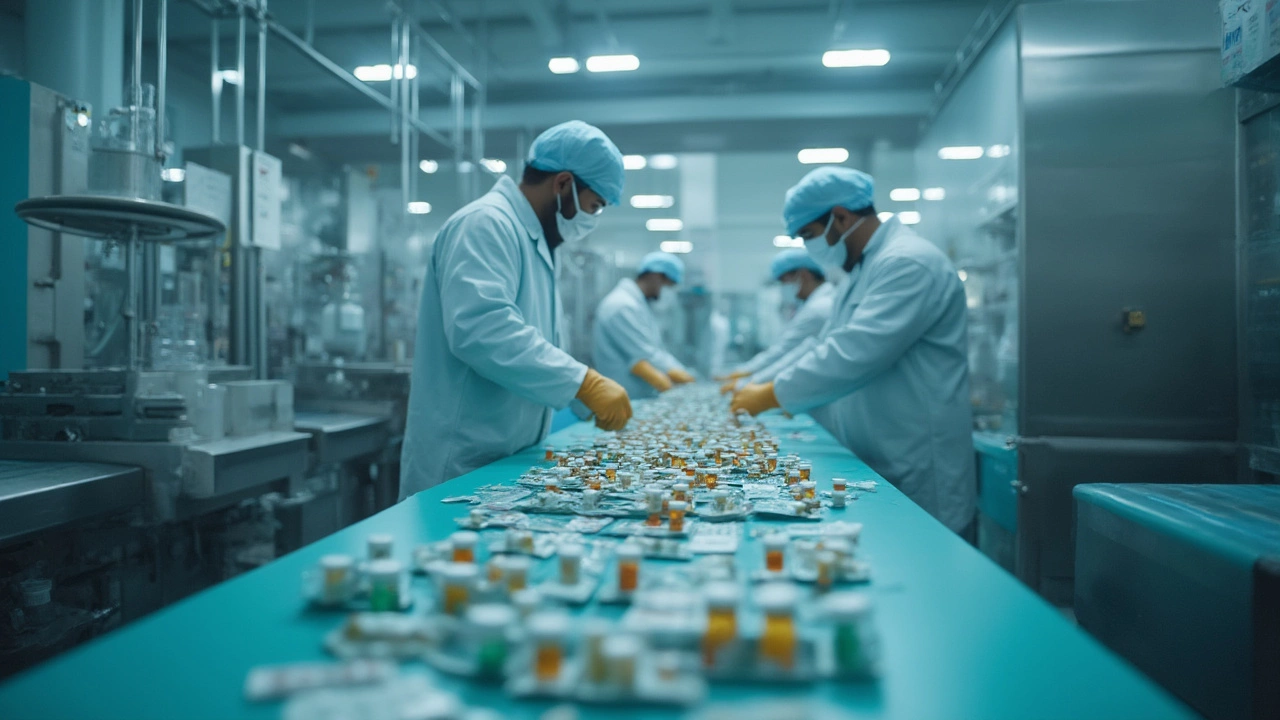CVS Drug Suppliers – The Real Backbone Behind Your Prescription Fill
Ever wondered why the medicine you need shows up on the shelf right when you walk into a CVS store? It’s not magic – it’s the work of CVS drug suppliers. These are the companies that ship pills, vaccines, and over‑the‑counter products from manufacturers straight to CVS distribution centers. Knowing how they operate helps you see why some drugs are cheap, why others disappear, and what you can do if you run into shortages.
Who Supplies CVS and Why It Matters
CVS works with a mix of big‑name pharma giants and smaller specialty manufacturers. The goal is simple: keep a steady flow of safe, effective medicine at a price that customers can afford. Suppliers are chosen based on three things – reliability, cost, and compliance with FDA rules. When a supplier consistently delivers on time and meets quality standards, CVS can promise fewer stock‑outs and lower prices.
Because CVS serves millions daily, even a tiny delay in a shipment can affect thousands of patients. That’s why the company has strict contracts that spell out penalties for missed deliveries and requirements for temperature‑controlled transport. In short, a good drug supplier equals a smoother experience for you.
How CVS Picks and Monitors Its Suppliers
First, CVS runs a background check on any potential partner. The review looks at the manufacturer’s licensing, past inspection results, and ability to meet volume demands. Next, the company asks for sample shipments to test quality and packaging. If those pass, a formal agreement is signed, usually covering price negotiation, delivery schedules, and reporting requirements.
After the contract is in place, CVS doesn’t sit back. They continuously monitor on‑time delivery rates, temperature logs, and any complaints from pharmacies. If a supplier slips, CVS can activate backup sources or renegotiate terms. This ongoing oversight protects the consumer from counterfeit or expired products.
What Changes in the Supply Chain Mean for You
New tech is shaking up the whole process. Real‑time tracking, AI‑driven demand forecasting, and blockchain for traceability are becoming common. For CVS shoppers, that translates to fewer surprise shortages and clearer information about where a drug comes from.
Another trend is the rise of local manufacturers. By sourcing more drugs from U.S.-based producers, CVS can reduce shipping times and lower carbon footprints. If you’re interested in supporting domestic pharma, ask your pharmacist if a medication is locally sourced – many will know.
Practical Tips for Customers
1. Keep an eye on refill reminders. If a medication is nearing its refill date, ordering early gives CVS time to reorder if a supplier hiccup occurs.
2. Talk to the pharmacist about generic alternatives. Generics often come from a wider pool of suppliers, which can lower the chance of a stock‑out.
3. If you notice a repeated shortage, let CVS know. Feedback helps the company spot supplier issues faster.
Bottom line: CVS drug suppliers are the unseen partners that make sure you get the medicine you need, when you need it. Understanding their role gives you a clearer picture of why prices shift and why some drugs vanish from shelves temporarily. Next time you pick up a prescription, you’ll know there’s a whole supply chain working behind the counter to keep you healthy.
